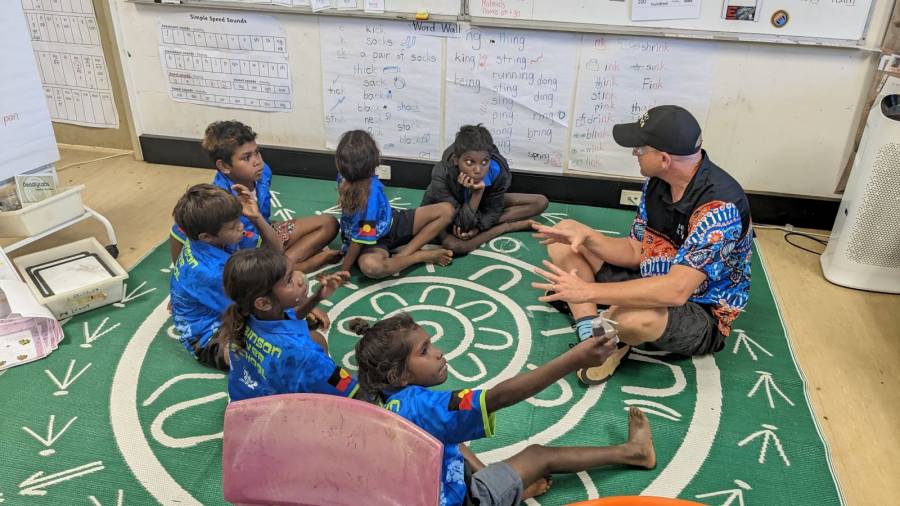
Earlier this year, Merck travelled to the Northern Territory with the DeadlyScience team to pilot the first DeadlyLabs kit. It’s a project led by Indigenous Elders in the Robinson River region to share their knowledge, their ideas, and their care for the community.
“It was an amazing experience for staff, students, and community. Everyone is still talking about it,” says Chris Errington from Robinson River School.
DeadlyLabs - a new project from DeadlyScience, supported by Merck, a leading science and technology company, is designed to merge cultural knowledge and learning on Country with hands-on experiments in the classroom.
About 50 students across 3 classes from Robinson River School combined traditional knowledge with classroom-safe science to make soap and test its ability to extradite bacteria from participants’ hands. They were joined by Aunties, Elders, rangers and virtually the whole township in an engaging and fun experience that saw students and community members teaching each other.
A film crew recorded the lessons so that Robinson River students can demonstrate soap-making and testing experiments to schools like theirs around Australia.
Garawa and Gunindiri Elders led the development of the pilot DeadlyLabs kit to pass down their knowledge of the value of cleanliness. University of Sydney chemist and science communicator Associate Professor Alice Motion provided the classroom chemistry expertise. It’s the first in a series of kits, with future packages exploring physics, biology, and more.
“The feedback from the Robinson River community was so warm and encouraging,” says DeadlyScience founder and proud Kamilaroi man Adjunct Associate Professor Corey Tutt OAM. “They’re so proud to be leading this pilot program, knowing that DeadlyLabs will become a kit that other communities can use, incorporating their own traditional knowledge.”
DeadlyScience was founded in 2019 by proud Kamilaroi man Adjunct Associate Professor Corey Tutt OAM to empower and engage young Indigenous children with science and provide science resources to remote schools in Australia. To date, DeadlyScience has delivered more than 25,000 books, 700 telescopes and other learning tools to students in remote communities.
